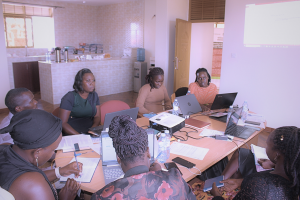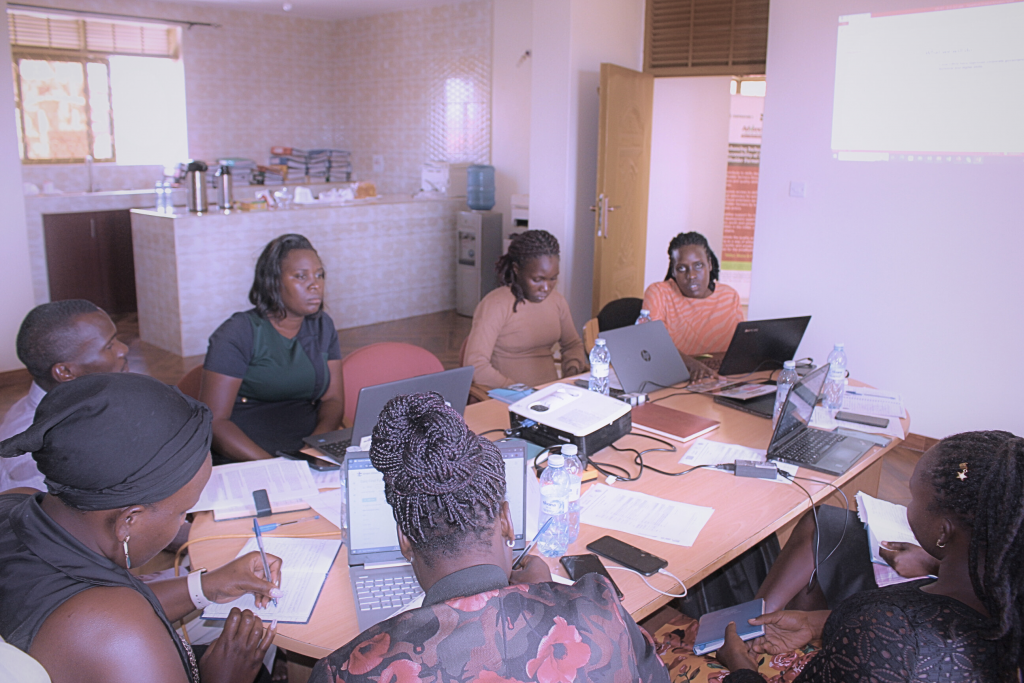 How digital skills can unlock potential of the youth
How digital skills can unlock potential of the youth
Advance Afrika is embracing new technologies in their skilling programs according to our digitalisation strategy. To unlock the potential of the youth as the next work force, investments in digital skills should be a priority area.
Digitalisation has become a powerful element for our society and economy.
Uganda has a Digital Transformation Roadmap anchored in the Uganda Vision 2040 of the government to harness economic and educative opportunities across the country. The digital transformation should increase investments in Information and Communication Technology (ICT) as one of the promising sectors, enhance livelihoods, create employment and boost industrialisation and manufacturing. The country internet penetration has reached 43% in 2023 and the number of registered internet users has steadly grown over the years, up to 20 Million.
Digital technologies change the way we interact
New digital innovations have changed the way individuals, communities, or even governments are interacting. They have influenced nearly all level of communication and collaboration between human beings and created new opportunities. Digital technologies and networks have changed our social behavior and our participation, opened access to information and knowledge, support customers in their decisions and enterpreneurs taping into various market. No office environment can work without digital devices, like notebooks, mobile phones, internet, E-Mail etc. In the last 25 years we have witnessed a huge digital transformation in nearly all economic sectors, including development aid.
Connect rural areas to information and services
Digitalisation is a cross cutting issue, which contributes to achieve many of the 17 UN sustainable goals. Nevertheless digitalisation in development aid seems to benefit only people in urban settings with stable internet connection, who can afford internet data bundles and new gadgets. The initial idea of digital technologies has been based on decentralistion. People who live far from the economic centers are able to access information, know how and services through internet networks. Decentral networks connect remote and rural areas to the main centers. The best example is the mobile communication network, which has contributed highly to economic development in Uganda and has created new markets and employment.
Demand for skilled staff in a growing market
Digitalisation has created new type of jobs like content creator, influencer, web programmer, system or network administrator, social media marketing, data visualisation, big data analytics and so on. Advisors, lecturers, engineers or medical doctors, in nearly all sectors and work areas need to have digital skills. Most offices are operating with internet, e-Mail, IT hardware and software for communication and operation. The digital economy is growing in high speed. Todays know how is tomorrow already out of date, when it comes to run electronic business, develop new platforms, Apps or services. The demand for qualified personnel is big, and many companies looking for staff with digital skills.
Benefits of digital transformation as a game changer
Digital Embassadors have been selected and equipped in Advance Afrikas projects, to train community members in digital literacy, access government or private sector services and get specific information through world wide web. ICT hubs in digital innovation centers have been set up to support young entrepreneurs in gaining marketing, sales or book keeping skills to improve their business, and get more know how. Especially the youth, who is more interested and attracted to new technology, needs to require skills to be employable, venture in new markets and seek for new income opportunities.
With improving network structures in Uganda, access to internet via world wide web becomes more affordable and stable. Sharon Atukunda, CEO of Advance Afrika emphasizes: „A trained and well equipped youth will benefit in the long run form the digital transformation, if digital trainings are part of any education program , respecting inclusion, participation and fairness. With our new digitalisation strategy we embracing key trends to unlock the potential of game changers and amplify economic progress in our country.“
If you are more interested in our digitalisation strategy, feel free to contact us!
Author: Dr. Mark S.Degner (Advance Afrika-Technical Advisor seconded by Bread for the World, Germany)



